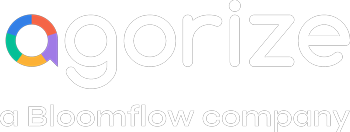How to recruit employees ethically and responsibly?
Nowadays, more people recycle plastic bottles, opt for organic products, and reduce meat consumption. You will probably wonder where the link between environmental protection and recruitment is. Like with climate change, a sense of urgency is seen in recruitment, and in both cases, it’s about responsible behavior and its further development.
Many companies find it challenging to attract new talent. According to YouGov and Monster study, 78% of 18-24s would not accept a job that doesn’t make sense. Your business ethics can be a differentiating factor for candidates.
How to promote fair, ethical, and responsible recruitment at your workplace? As in any market, the labor market bears its share of responsibility. The below seven principles will allow you to meet this goal.
Support candidates through awareness-raising content
In 2022, to attract suitable candidates, it’s no longer about changing uncle Sam’s poster from – “I want you for the U.S. Army” to “I want you for an X role”. They won’t buy it. Also, posting a job offer on a job board might not be enough to hire your dream candidate. It is now a mission of any self-respecting recruiter to create content that educates potential candidates.
What type of content? Articles, videos, podcasts, or webinars allow candidates to get their questions answered. Discover the webcasts of Axa, the YouTube channel of the French Ground Forces, and the best tips for getting hired at Decathlon.
Convey the TRUE values of the company
You will agree that there is nothing worse than being deceived by an unfulfilled promise. The same goes for recruitment.
How many candidates are lured by sales messages from hiring companies (superb working atmosphere, flexible office hours, opportunity to learn and grow, opportunity to travel, etc.), and once hired, they suddenly discover a completely different scenario?
It will only lead to frustration and resignation and degrade the quality of hire (QoH), which measures the value new hires bring to a company.
Instead, they prefer you to communicate the company’s authentic culture, which, even if not often perfect, is transparent and comprehensive and will necessarily meet the expectations of specific candidates.
Involve employees via ambassador programs
Employer branding is no longer a task solely for communication and HR representatives. It’s a global mission, and all company employees should be involved in various actions.
Your target candidates will thank you for the authenticity: they will be able to discover the company from insiders, without big words, and choose whether or not to apply.
For example, the French retail group – Carrefour – recruits 15,000 employees per year, and there is a reason for that! Discover the page dedicated to its ambassadors. Carrefour does not consider them recruits but future brand ambassadors who will recommend the company.
Present the mission of the position as it is
This training will give you the opportunity to:
- Validate the content we publish on social networks;
- Define our new internal communication strategy;
- Take part in all COMEX meetings;
- Evolve into a position of director of communication for the short term.
As you can see, it’s a challenging period for recruitment; however, overselling an offer to attract as many applications as possible is not the solution.
The best option is to be realistic. It won’t disappoint anyone and save you time and efforts of reposting the job offer in three weeks.
Evaluate candidates on valid selection criteria
As I often speak to recruiters in France, they tell me about their employers’ requests for specific candidates. Sometimes employers are unaware of the 24 non-discrimination criteria mentioned by the Labor Code in article L1132-1.
Ethical and responsible recruitment means recruitment that respects the Labor Code. According to this Labor Code, it is forbidden to punish or dismiss employees or exclude potential employees from the recruitment process based on:
- Gender
- Last name
- Origin
- Pregnancy
- Marital status
- Physical appearance
- Place of residence
- Health status
- Disability
- Genetics
- Mores
- Sexual orientation
- Gender identity
- Age
- Political opinions
- Trade union or mutualist activities
- Belonging or not, to a real or supposed ethnic group
- Membership or non-membership, real or imagined, of an alleged race
- Membership or non-membership, real or imagined, of a nation
- Religious beliefs
- Loss of autonomy
- Particular vulnerability of the person resulting from his apparent or known economic situation
- Ability to speak in a language other than French
- Direct debit banking
Candidate onboarding
Among many others, there are two types of discomfort that I’d like to draw your attention to:
- Greeting a stranger in the street, thinking he was a friend;
- Joining a company without being welcomed and spending your first-day reading internal documents.
As a hiring manager, you will do your best to avoid putting your new hires in the second embarrassing situation. Especially after you have made all the efforts to introduce them to the company, trigger their curiosity, conduct an informed recruitment interview and validate their application.
Onboarding is key to optimize Quality of Hire kpi (QoH), and it shouldn’t go wrong!
An eco-responsible welcome kit
It is hard to summarize this article about ethical and responsible recruitment without proposing a genuine welcome kit. But not just any.
To name a few, many eco-friendly companies such as L’Oréal, BNP Paribas, and BPCE Group have already adopted an eco-responsible welcome kit.
Some examples are a healthy lunch box, a pretty glass gourd, a bag of seeds, and many other surprising eco-friendly gifts. New hires love this! Is the more yet to come?
In a nutshell
The recipe for ethical and responsible recruitment is ultimately about common sense, trust, and people, not to mention the essential part of Labor Law.
Ethical recruitment is a fun and attractive process for recruiters and potential candidates.
Recruiters invest their efforts in their candidates and obtain results, while the candidates feel respected and valued and recommend the company to those around them.
Are you now ready to adopt these principles for ethical and responsible recruitment ?
Guillaume COUDERT
Associate Director at Agorize
Expert in Employer Branding – Moderator of the blog MarqueEmployeur.net
FAQ
Ethical and responsible recruitment involves conducting hiring practices that are fair, transparent, and respectful of individuals’ rights. It includes promoting authenticity in employer branding, avoiding misleading promises, involving employees in ambassador programs, presenting accurate job positions, adhering to non-discrimination criteria outlined in the Labor Code, ensuring a thoughtful onboarding process, and implementing eco-responsible welcome kits.
Companies can promote fair, ethical, and responsible recruitment by adopting several principles. These include creating awareness-raising content for candidates, conveying the true values of the company, involving employees in ambassador programs, presenting job positions realistically, evaluating candidates based on valid selection criteria outlined in the Labor Code, ensuring a thoughtful onboarding process, and providing eco-responsible welcome kits.
The key principles of ethical and responsible recruitment include:Supporting candidates through awareness-raising content.
Conveying the true values of the company authentically.
Involving employees in ambassador programs for employer branding.
Presenting the mission of the position accurately without overselling.
Evaluating candidates based on valid selection criteria outlined in the Labor Code.
Ensuring a thoughtful onboarding process for new hires.
Offering an eco-responsible welcome kit to promote sustainability.
These principles aim to create a respectful and positive recruitment experience for both recruiters and candidates.











